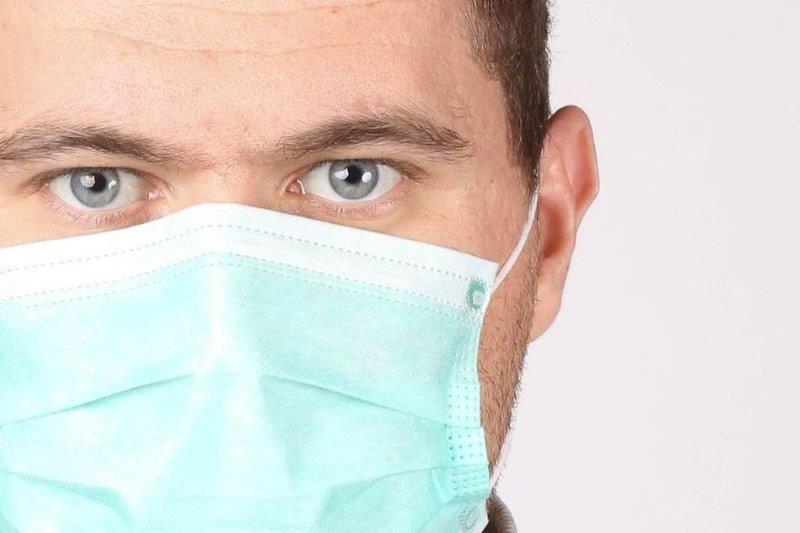ODOB: Level 4 advice for the NZ optometry community
The following is an announcement from the Optometrists and Dispensing Opticians Board (ODOB) regarding the government’s Covid-19 Alert Level 4 announcement on Monday.
FROM THE ODOB BOARD
Dear practitioners,
Further to our earlier communication regarding COVID-19, the Board has received a number of enquiries seeking further clarification on what the alert levels mean for optometry practices.
As you will be aware, the Prime Minister has announced New Zealand COVID-19 alert levels and has indicated that the country will move to alert level 4 at 11.59pm on Wednesday the 25th of March 2020. This means:
- People are instructed to stay home
- Educational facilities are closed
- Businesses closed except for essential services* and lifeline utilities
- Rationing of supplies and requisitioning of facilities
- Travel is severely limited
- There is a major reprioritisation of health care services.
*Essential services has now been more specifically defined and for health is defined as:
- District Health Boards (and all of their facilities), Pharmac, New Zealand Blood Service, Health Promotion Agency, Health Quality and Safety Commission
- Any person employed or contracted as a doctor, nurse, midwife, pharmacist, paramedic, medical laboratory scientists, kaiāwhina workers, social workers, aged care and community workers, and caregivers more generally
- Hospitals, primary care clinics, pharmacies, medical laboratories, care facilities (eg. rest homes)
- Any entity providing ambulance services
- Any entity involved with the deceased/tūpāpaku (eg. funeral homes, crematories, cemeteries)
- Any entity producing health sector equipment, medicines and PPE
What does this mean for Optometry practices?
Optometry practices are not categorised as an essential service and therefore must close their doors by 11.59 pm on Wednesday the 25th of March 2020 and remain closed until the lock down is lifted.
We know that this is very upsetting and has far-reaching implications for all, both now and going forward, but we must all do our bit to reduce community transmission and follow the direction of the Government and health authorities at this time.
Keep up-to-date with information
- https://covid19.govt.nz/ - for all the up-to-date information on COVID-19 and the New Zealand response
- www.health.govt.nz/our-work/diseases-and-conditions/covid-19-novel-coronavirus/covid-19-novel-coronavirus-information-specific-audiences/covid-19-novel-coronavirus-resources-health-professionals - for health practitioner specific advice on COVID-19
Your professional associations will also be good sources of information and advice so check their websites and e-communications for relevant information.
Keep your patients up-to-date
During the lock down period, practices must keep their patients up-to-date with information in regards to what their patients should do in an eye care emergency, just like you do if your practice is closed for the Christmas period. This could include:
- Placing signage on your practice window or door, directing them to call the appropriate phone numbers for assistance
- Including an answerphone message on your business line
- Email or text alerts with instructions on the number to call for emergency assistance
- Placing information on practice websites or social media pages
- Encouraging patients with suspected signs or symptoms not to go directly to their local A&E, but to call the appropriate helpline first
Request from the Pharmacy Council to prescribers
Pharmacists are under enormous pressure in responding to the requirements of COVID-19 and are needing to protect themselves at the same time as assisting patients in dispensing their medicines. It would be extremely helpful if you could encourage all prescriptions that are issued before the lock down commences to be no greater than one month and then faxed or sent through NZePS to the pharmacy desired by the patient.
The rationale for this request: first and foremost, they are trying to restrict the number of patients presenting physically to pharmacies and waiting for prescriptions, risking the transmission of COVID-19. They are aware that patients are seeking extra supplies of medicines and stock-piling which is endangering equal access of all to their regular medicines. Community Pharmacists have been contacting the Pharmacy Council with concerns about stock shortages and anxious, angry patients when pharmacists try to explain the legal restrictions associated with the medicine supply. Patients have been presenting with six months’ worth of prescriptions for medicines that must be dispensed monthly, expecting pharmacists to dispense the entire six months stat.
What is the ODOB Board doing?
The Board has been busy liaising with other regulators, the Ministry of Health and its staff to ensure the seamless delivery of regulatory services, activating its business continuity plan and moving to a ‘working from home’ mode of operation. The Board office remains contactable by the usual methods of phone and email, but our physical office is closed for the time being. Enquiry volumes could be high, but we will respond as promptly as we are able.
APC renewals
If anyone finds themselves having difficulty renewing their APC as a result of COVID-19 barriers, please contact the Board immediately and we will consider each situation on a case-by-case basis. You can email the registrar at registrar@odob.health.nz
Recertification requirements
The majority of face-to-face events/conferences have now been cancelled and may not be rescheduled for some time, if in fact they do go ahead in the future. The Board recognises that this will have an impact on the ability of some practitioners to meet the requirements of the Board’s recertification programmes, so the Board has resolved to extend both cycle end dates by 12 months as follows:
- Optometrists, until 31 October 2021
- Dispensing Opticians, until 30 November 2022.
In addition, the Board is working with CPD providers and professional bodies in New Zealand and Australia to accredit and provide more non face-to-face CPD opportunities. The Board encourages optometrists and dispensing opticians to get online and see what’s available, and perhaps utilise some of this lock down period to learn and connect in new ways with colleagues and put your passion for optometry and optical dispensing to a different use during a time when you are unable to be on the shop floor seeing patients.
In terms of Board audits, the Board will be deferring the issue of all random self-audit requests until at least October 2020. Those currently in the process of completing random self-audits will be given a further six weeks to complete these.
We’re all in this together
In times like these there can be a lot of anxiety and uncertainty and this is perfectly normal. It’s important to take care of your mental as well as physical health. If over the following days and weeks you feel you are not coping, it’s important to seek help and professional support. Your family doctor is a good starting point, but reach out to whomever you feel comfortable. This could be a friend, family member, neighbour or colleague.
While we do need to maintain the lock down at all times and in most instances cannot physically go out to meet and talk to people, there are many other methods of communication that can be used to get in touch with people and stay connected. These include phone, email, text messaging, social media and other internet-based applications such as ‘WhatsApp’ etc.
For support with grief, anxiety, distress or mental well-being, you can also call or text the 'Need to talk?' service on 1737. This service is free, available 24 hours a day, 7 days a week and gives you the chance to talk it through with a trained counsellor.
These are unprecedented times and we all need to work together. Support each other, no matter what role you play in the optical industry, no matter who you work for or what title you have. It is the Government’s role to provide leadership, guidance and to keep everyone updated on the facts, but all New Zealanders have a role to play in getting through this.
We are all in this together and we will get through this.
Kia Kaha,
Jayesh Chouhan
ODOB Board Chair

























